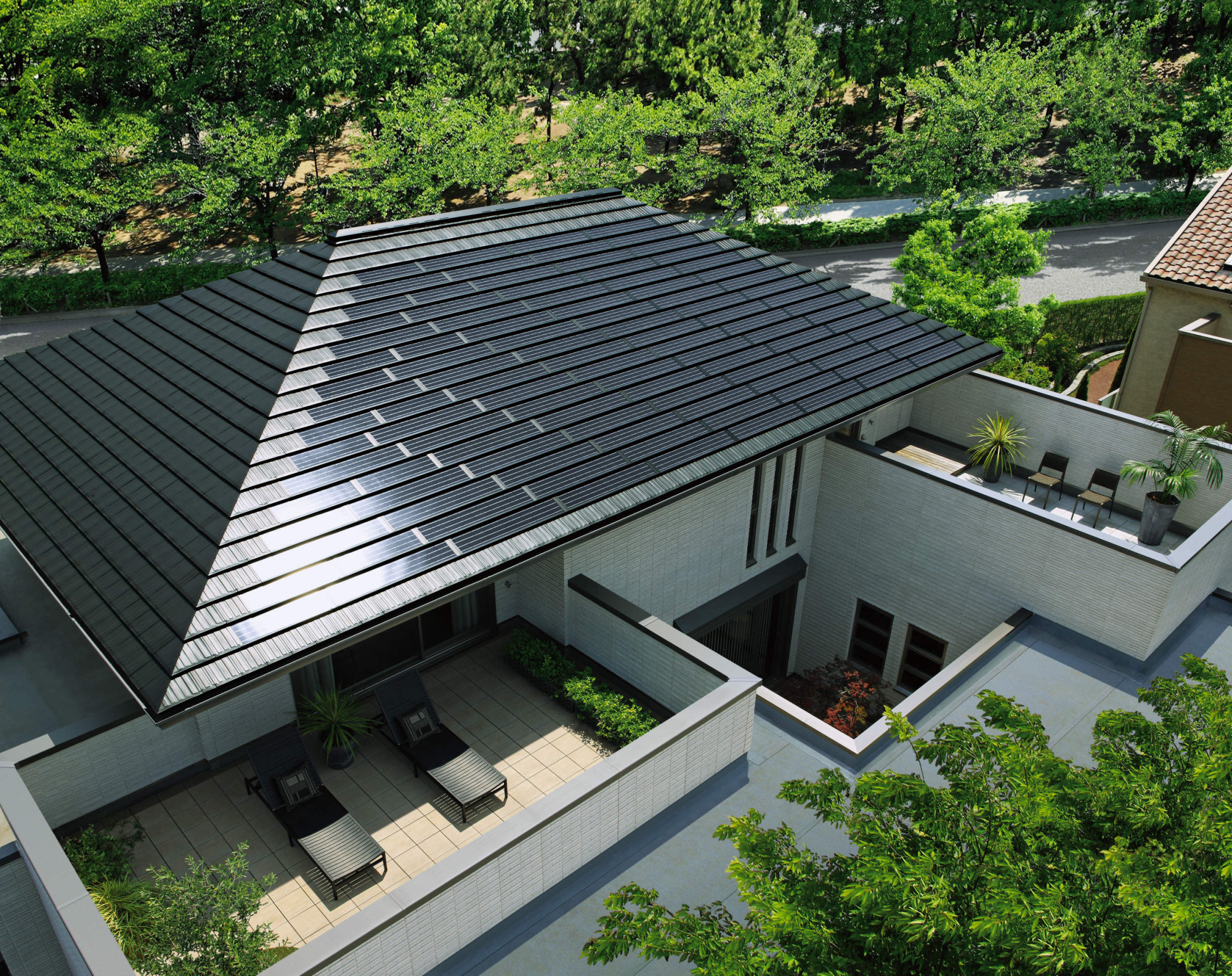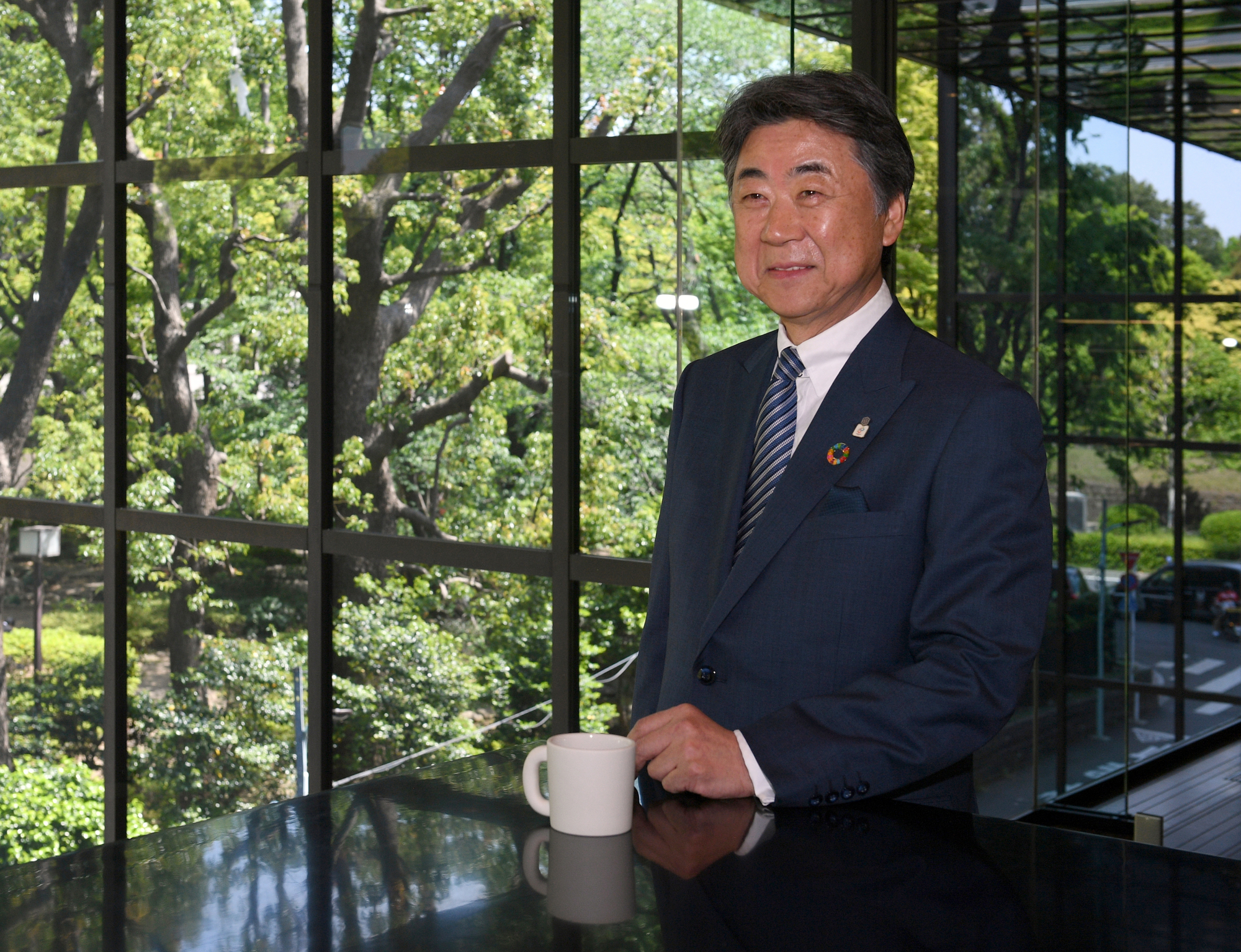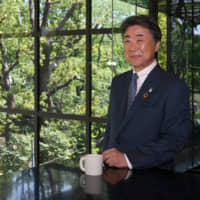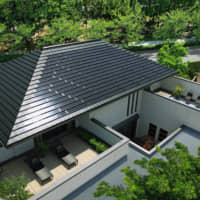As the world faces numerous sustainability and environmental issues, governments and businesses are tasked with coming together to find solutions to the problems that most affect our global community.
In the housing industry, Sekisui House Ltd. has taken on the mantle of environmental leadership, paving the way toward a sustainable future by aligning its environmental goals with those of the international community and committing itself to addressing sustainability and climate change by reducing carbon dioxide emissions and preserving the environment of its communities.
“I believe companies have a huge responsibility to contribute to society,” and that is why Sekisui House is fully committed to reducing the risk of climate change, Chairman and Representative Director Toshinori Abe said during a recent interview with The Japan Times.
‘Eco-First Company’
Founded in 1960, Sekisui House is one of Japan’s largest homebuilders, building around 45,000 houses every year. With 2.4 million properties in total, the Osaka-based company is engaged in a wide array of business ventures, including condominium and hotel development, home renovation and leasing services. The company is active around the world, developing projects in Australia, China, Singapore and the U.S., with sales last year amounting to approximately $20 billion.
At the heart of Sekisui House’s philosophy is a commitment to providing houses that suit the diverse needs of its homeowners and ensuring the health and safety of its communities. With the announcement of its Environmental Future Plan in 1999, Sekisui House established itself as an industrial leader by being the first in its field to present a framework for a housing environment that preserves the planet for future generations. In 2008, the homebuilder was recognized for its environmental efforts when it became the first in its industry to be certified by the Ministry of the Environment as an “Eco-First Company” — a designation given to companies recognized as leaders of environmental initiatives in their respective industries.
“As part of our eco-first commitment, we are committed to implementing net zero-energy houses (ZEH), reducing the amount of materials we use and completely reducing carbon dioxide emissions. This commitment also entails eliminating waste at our factories and construction sites — targets we have already nearly achieved,” Abe said.
Another aspect of the company’s eco-first commitment is the restoration of ecological networks, particularly through what the homebuilder calls “Gohon no ki” (five trees), a gardening concept that creates friendly environments for birds and butterflies, allowing harmonious coexistence with nature.
“As a global environmental leader, Sekisui House has set the following goals for 2050: decarbonization, zero deforestation and zero emission,” Abe said. “These environmental initiatives are linked to our fundamental philosophy of providing houses that enable comfortable lifestyles for all residents, including children, the elderly and those with special needs.”
Embracing renewable power
Among the many environmental issues facing the global community, climate change is one that calls for immediate action. Recognizing this urgency, Sekisui House has become an industrial and national leader in aligning its environmental goals with those of the international community. At the 2015 United Nations Climate Change Conference, Sekisui House was the only Japanese firm to join the Global Alliance for Buildings and Construction established that year.
Further exemplifying its position as a leader in climate action, Sekisui House became the first in the country’s construction industry to join the RE100 initiative in 2017 that aims at using only renewable energy in business activities, and its carbon dioxide emissions reduction target for 2030 was approved by the Science Based Targets initiative last year.
In current times, the relationship between business, society and the environment is becoming increasingly complex and integrated. This is reflected in the issues of climate change and sustainability, which present latent risks and opportunities for businesses. It is for this reason that Sekisui House consistently assesses risks and opportunities from a perspective based in sustainability and the U.N.’s Sustainable Development Goals.
A crucial initiative for assessing risks and opportunities related to climate change is the Task Force on Climate-related Financial Disclosures (TCFD), which develops voluntary climate-related financial risk disclosures for companies to use when providing information to stakeholders. In 2018, Sekisui House became an advocate of the initiative and ever since has assessed risks and opportunities based on scenarios that align with TCFD’s recommendations.
The TCFD is a crucial component of the global business environment because it allows businesses and their stakeholders to systematically assess the financial risks of climate change. By developing these financial risk disclosures, the TCFD strengthens the stability of the financial system and creates the impetus for a transition to a more sustainable economy. In 2008, Sekisui House became the first company in Japan to declare its intentions to completely eliminate all CO2 emissions by 2050, and has been making the utmost efforts to align with its call to limit global warming to 1.5 degrees Celsius.

Over 40,000 ZEH
Central to the company’s initiative to address climate change are its net zero-energy houses, which use cutting-edge insulation technology to reduce energy requirements and solar-power generation systems to account for remaining energy needs. Utilizing its wealth of expertise and technology, Sekisui House’s ZEH combine comfortable living with durable, environmental design.
“One of the unique characteristics of our ZEH is their large windows, which allow bright living environments,” said Abe. “Solar roof panels are seamlessly incorporated into the design so that they are unnoticeable when looking at the houses’ exteriors. The design reflects our objective to bring together aesthetics, functionality and comfort.”
Sekisui House is fully committed to implementing ZEH throughout its business ventures. In fiscal 2018, zero-energy houses accounted for 79 percent of all new properties, and a total of 44,247 ZEH have been built. Abe made a presentation about these efforts at the COP24 U.N. Climate Change Conference 2018 held in Katowice, Poland, in December last year. “We are the largest provider of zero-energy houses not only in Japan, but also in the world,” he said.
Though Sekisui House is proactively implementing ZEH into its business ventures, there is still room for improvement in Japan, where ZEH account for only around 10 percent of homes built by major companies in Japan, according to Abe. He went on to add that this presents both challenges and opportunities.
“The situation calls for us to continue stressing the importance of addressing climate change,” said Abe. “In addition to my position as chairman and representative director of Sekisui House, I also serve as chairman of the Japan Federation of Housing Organizations, and this topic often comes up at meetings. At Sekisui House we are working as hard as possible to expand the presence of zero-energy houses.
“Going forward we will focus efforts on renovating leased condominiums and other properties so that they acquire some of the qualities of zero-energy houses, such as low energy consumption and solar power generation,” he explained.
Abe hopes that at the G20 Summit in Osaka, international leaders will use the topic of climate change to come together and establish a shared understanding regarding the importance of addressing the environmental issue, similar to how world leaders united in 2015 to sign the Paris agreement.
“Just last year we experienced fierce heat waves and powerful typhoons in Japan, and as such we are very aware of the effects that a 1 or 2 degree increase in global warming may bring. It is therefore vital that we come together to establish an understanding among countries around the world and use it as a foundation to take comprehensive action,” Abe said.





